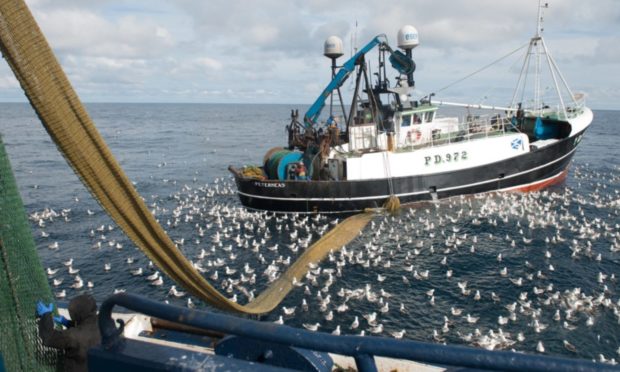Two Scottish fishing bodies are calling on the SNP Government to set up its own expert panel to address any “insane” advice and help future international quota negotiations.
The Scottish White Fish Producers’ Association and the Shetland Fishermen’s Association say the independent panel would be able to analyse data including estimates on how many fish are in the sea.
They hope the Scottish fisheries minister would then be able to refer to the panel’s analysis when negotiating with the EU and Norway, not just relying on one source from the International Council for the Exploration of the Sea.
In a report by the two fishing bodies, called ‘ICES-Plus: Improving scientific advice in Scottish fisheries management’, the authors claimed: “Given the dire circumstances of Scotland’s white fish fleet in 2021, which largely reflects ICES advice on a particular stock that borders on the insane, we would urge the government to set up such a panel this year, ready to consider the ICES advice due in June.”
Fishing quotas determine how many of each species of fish Scotland’s fishermen are allowed to catch. Prior to Brexit, the UK’s fishing quotas were set by the EU’s Common Fisheries Policy.
The report states: “The timing for such an initiative could hardly be better, as the Scottish Government now has responsibility for fisheries management in Scottish waters and plays a vital role in determining the UK’s negotiating position in international quota talks.
“We are not looking to supplant or downplay ICES’s role in providing fisheries management advice. Clearly ICES will remain the dominant provider of such advice for the foreseeable future.
“But we have good reason to believe that an alternative view on major stocks would add considerably to the quality of management decisions.”
Simon Collins, executive officer at Shetland Fishermen’s Association, said: “Every year annual negotiations start with ICES advice and the recommendations are based on that.
“There is a bunch of advice coming out now to inform Scottish and UK negotiations when they meet with Norway and the EU to discuss quotas for the next year – we want a panel that can come in and look at that advice.
“Politicians are reluctant to depart from the ICES advice, even if it looks off.
“For example, there are swings from year to year, and honest mistakes are made, but an independent panel could pick that up.
“Mackerel quotas have gone from 800,000 a year to 300,000 a year, and then back up to 900,000 a year – there is clearly something wrong there, and the minister would have good reason to depart from this advice.
“In 2016 scientists said to increase haddock catches by 30%, so we went into the negotiations saying that.
“But it should have been cut by 45% and we want to avoid that from happening, because often the science has been wrong.”
‘We need to look again’
He added: “North Sea cod for example has had its quota cut over the last two years way more than it should have been, so we need to look at that again.
“This is very pressing because we are about to receive the advice at the end of the month, and that will decide the catches for the next year, so anything odd needs to be stopped now.”
Mr Collins said the Scottish and UK fishing industries are now in a position to question the science provided by ICES post-Brexit.
He said: “With Brexit being done, the UK negotiates with the EU.
“Before when the UK was part of the EU, the stock negotiations were between the EU and Norway. Now these stocks are negotiated by the EU, Norway and the UK.
“The basis of these negotiations has not changed, so it doesn’t matter if you are in or out [of the EU]. But if you are out of the EU’s Common Fisheries Policy, the UK is in a position to say ‘that looks wrong’ – before that would only happen if the whole of the EU came to the same conclusion.
“On paper we are equal negotiating partners and can raise objections.”
He added: “In the long run Scotland should have its own institute that can provide advice, but until we get to that point we need something for politicians to get advice from a respected panel.
“We have experts here and they are willing to contribute for a better outcome.
“Fishermen are absolutely up for improving things and paying for it.
“If it is credible, we gain from it, and right now we don’t think it is done too well.”
Shetland MSP calls on Scottish Government to respond to fishing report
Meanwhile, Shetland MSP Beatrice Wishart called for the Scottish Government to address the report’s recommendations.
Mairi Gougeon, minister for rural affairs and the islands, said: “Marine Scotland scientists provide the ICES with data, evidence and expertise in relation to stocks of interest to the UK, providing the basis for international advice.
“These scientists already contribute to the peer review of ICES advice in accordance with the organisation’s own advisory framework and principles, and are best placed to comment on the quality of advice from ICES and where appropriate challenge that advice or the interpretations and assumptions.
“Marine Scotland intends to discuss these issues with the fishing industry under the future fisheries management strategy.
“The Scottish Government’s negotiating position has always been to deliver the best outcome for Scotland’s fishing interests through securing sustainable catching opportunities.”
